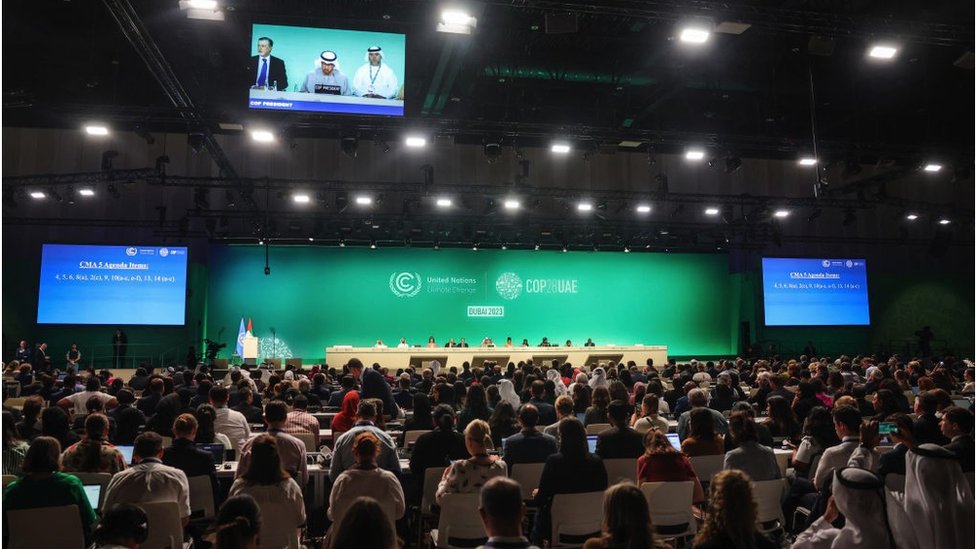Nigeria, Uganda, Colombia, and other countries complain that they need revenues from the sale of coal, oil, and gas to be able…

…to afford the transition to green energy in the future
When the decision was made that the climate summit would be organized in an oil country, many wondered if it could bring about change.
The agreement reached in Dubai for the first time takes into account that fossil fuel emissions affect the temperature rise and envisages a reduction in the use of coal, oil, and gas.
For the United Nations, it is the biggest step forward in solving the problem of climate change since the Paris Agreement in 2015.
However, the agreement alone is unlikely to be enough to keep the temperature rise below 1.5 degrees Celsius.
The most significant part of the agreement is the transition from fossil fuels to other fuels, but far more gradually than many countries want.
At the beginning of the summit, the presidency of the United Arab Emirates (UAE) presented a proposal for a part of the agreement on the gradual abolition of fossil fuels, which met with strong resistance, so this draft agreement was abandoned.
This has angered climate activists, with many blaming oil producers.

But it is not the fault of countries that have a developed oil industry, but also of developing countries, which do not have an agreed position on the phase-out of fossil fuels.
Nigeria, Uganda, Colombia, and other countries complain that they need income from the sale of coal, oil, and gas to be able to afford the transition to green energy in the future.
Colombia complains that less use of fossil fuels would lower its credit rating, making it more expensive to borrow internationally, which it needs to invest in a green transition.
The final agreement calls for countries to “pass” from fossil to other fuels, especially for the supply of energy systems, but not in the areas of transport and agriculture.
The agreement also has many other elements that will help curb emissions, including a new commitment to triple renewable energy and energy efficiency by 2030.
This will see wind and solar displace some coal, oil, and gas.

Another important part of the agreement is the reduction of carbon dioxide emissions until 2025.
If China and India commit to a rapid transition to green energy, it could contribute significantly to global efforts.
The agreement mentions the use of “transitional fuels”, which is code for the continued use of natural gas.
It also underlines the use of carbon dioxide storage technology, which oil producers want to use to continue drilling.
Several small island states were angered that the deal was announced while their representatives were out of the room.
They see the biggest minus of the agreement as the fact that it does not provide for large reductions in short-term emissions, and they say that this threatens their way of life.
“We sympathize with you and it is clear to us that this text may not be enough for you or your children,” said German Foreign Minister Analena Berbock.
As she added, the agreement reached in Dubai is just the beginning.
Independent observers believe the summit helped get things on the right track and predict that as the cost of using renewable energy sources falls, the arguments in favor of moving away from fossil fuels will only get stronger.
There is hope that in 2025, Brazilian President Lula will have the opportunity to write off fossil fuels forever.
Napomena o autorskim pravima: Dozvoljeno preuzimanje sadržaja isključivo uz navođenje linka prema stranici našeg portala sa koje je sadržaj preuzet. Stavovi izraženi u ovom tekstu autorovi su i ne odražavaju nužno uredničku politiku The Balkantimes Press.
Copyright Notice: It is allowed to download the content only by providing a link to the page of our portal from which the content was downloaded. The views expressed in this text are those of the authors and do not necessarily reflect the editorial policies of The Balkantimes Press.

